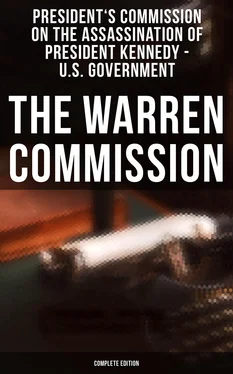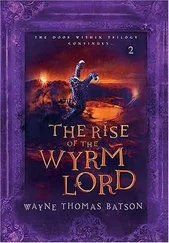Mr. Jenner. Would it be if at all quite infrequent?
Mr. Oswald. Yes, sir, quite infrequent.
Mr. Jenner. This leads me to put this general question to you, Mr. Oswald.
I take it that for some period of time in that area of time—that is '58, '59, and perhaps even back of that—your contact with your mother was quite limited?
Mr. Oswald. Yes, sir; that is correct.
Mr. Jenner. Over what period of time did that persist? Give us the broad picture first.
Mr. Oswald. I would say, sir, quite frankly that the original occurred prior to my joining the Marine Corps in 1952.
Mr. Jenner. And persisted thereafter?
Mr. Oswald. Persisted thereafter that I saw her only very infrequently.
Mr. Jenner. Did your joining the Marine Corps—was that stimulated in any respect by your relations with your mother, or your mother's with you?
Mr. Oswald. Partly, sir; it was.
Mr. Jenner. Would you state that, please?
Mr. Oswald. At the end of the school year of 1952, which was approximately May 29, 1952——
Mr. Jenner. You were then 17 years old, is that correct?
Mr. Oswald. 18 years old. I, of course, was still living at home. In approximately the middle part of June 1962 a friend of mine in Fort Worth and I decided to take a hitch-hiking trip to Florida. We left Fort Worth in the middle of June, 1962, and we——
Mr. Dulles. '52?
Mr. Oswald. Yes, sir. In June of 1952 we left Fort Worth and traveled I believed as far as Gulfport, Mississippi. And this friend I was with—he did have a defect from birth on one foot that was starting to bother him. And we decided it was best to return to Fort Worth, by a different route than we originally left Fort Worth. We went from Fort Worth to Shreveport, New Orleans, and Gulfport, Mississippi.
Our return was Gulfport, Mississippi, New Orleans, Houston, Big Springs, Tex., and Fort Worth, Tex.
At that time I stayed at his home, with his mother and himself.
Mr. Jenner. Why?
Mr. Oswald. Because mother and I was having a disagreement.
Mr. Jenner. About what?
Mr. Oswald. About whether or not I was old enough to start my own life generally.
Mr. Jenner. That is whether you would depart the family home and live on your own?
Mr. Oswald. Yes, sir, and generally whether or not I had the right to start my own life in the manner that I wanted to.
Mr. Jenner. Were you unhappy with the manner and fashion of life that you had led up to that moment?
Mr. Oswald. Not in the manner or fashion, sir. I objected quite strongly to the apparent efforts of our mother to control me completely in all respects.
Mr. Jenner. Did that condition or relationship exist with respect to your brother, John Pic?
Mr. Oswald. I would say generally it would, sir.
Mr. Jenner. It did rather than it would?
Mr. Oswald. That it did, yes, sir—thank you.
Mr. Jenner. And was that a factor in his enlisting in the Coast Guard?
Mr. Oswald. It is not to my knowledge that it was.
Mr. Jenner. I take it you and John, then, had had, if I may use my own expression, difficulties in your relationships with your mother, particularly with reference to what you gentlemen thought as you reached age 18, as the right to be independent and lead your own lives?
Mr. Oswald. That is correct.
Mr. Dulles. Do you think that your brother, Lee Oswald, had the same feeling, that may have affected his joining the Marines?
Mr. Oswald. Based on my own personal experience, sir, I would reach that conclusion.
Mr. Dulles. You would?
Mr. Oswald. Yes, sir, I would.
Mr. Dulles. Thank you.
Did your mother know about this hitch-hiking trip, or did you just go off on the trip?
Mr. Oswald. I just went off on the trip, sir.
Mr. Jenner. Without advising her?
Mr. Oswald. Yes, sir, that is correct.
Mr. Jenner. Did you get in touch with her upon your return to Fort Worth?
Mr. Oswald. No, sir; I did not. I would say this. I did attempt to call her before I left Fort Worth on this trip, and there was no answer at home.
Mr. Jenner. All right. Now what led us back along this trail was the conversation you had with your brother Lee when he was discharged from the Marines on September 11, 1959, and his statement to you that he had an early discharge because your mother had written a letter to the Red Cross.
Mr. Oswald. That is correct.
Mr. Jenner. And then you saw her in April, and that was the last time you saw her prior to seeing your brother on his discharge from the Marines?
Mr. Oswald. That is correct.
Mr. Jenner. Now——
Mr. Dulles. Could I ask one question there.
Do you know whether your brother stimulated this letter from your mother with regard to early discharge, or do you think she did this on her own, or don't you know?
Mr. Oswald. It is my understanding, sir, that she had originated the request to the Red Cross.
Mr. Jenner. And that understanding is based on what?
Mr. Oswald. Just a general feeling that I had at that time.
Mr. Jenner. Was it induced also by discovering from your brother that your mother had written a letter to the Red Cross?
Mr. Oswald. I am sure it was, sir. And I might add I pointed out to Lee why did you accept this early discharge, since he only had a few months more, I believe it was, to go. Because it had been my experience in the service that when I ran across somebody who, for one reason or another, was going to get out a little bit early, I understood that they perhaps were subject to recall for that period at a later date, or something along that line. And I thought it was unwise.
Mr. Jenner. Is this what you said to him?
Mr. Oswald. Yes, sir. I pointed out—I felt like since it was to be under the regular enlistment period very shortly thereafter, I believe September 11, 1959, that it would have been the wise thing to stay in.
Mr. Jenner. What did he say to that?
Mr. Oswald. I do not recall, sir.
Mr. Jenner. You were living in Fort Worth, married, and still you were having substantially little contact with your mother, is that correct?
Mr. Oswald. That is correct.
Mr. Jenner. Would you explain to the Commission the reasons for that, the conditions which brought that about?
Mr. Oswald. After my marriage to Vada M. Oswald, my mother on a number of occasions—I say a number—perhaps three or four occasions—made it quite difficult for my wife and myself when we were in her presence at her apartment there in Fort Worth.
Mr. Jenner. Now, please, Mr. Oswald—when you say your mother made it quite difficult, give us some examples. What do you mean by "made it quite difficult"?
Mr. Oswald. Generally, sir, it was the continuation that, even though I was married and apparently able to take care of myself and start my own family, she certainly wanted to—my mother certainly wanted to—still control my thinking, my actions, and my wife's actions.
Mr. Jenner. Can you give us one specific example?
Mr. Oswald. Sir, I cannot recall any specific examples.
Mr. Jenner. Indicate the nature of those incidents.
Mr. Dulles. Had she objected to your marriage?
Mr. Oswald. I don't believe she did, sir. At least I do not recall any time that she ever stated that, any objections to my marriage.
Mr. Jenner. Did you have the feeling that she objected?
Mr. Oswald. Yes, sir, to some extent I did.
Mr. Jenner. Did you have a conversation with her about your becoming married before you became married?
Mr. Oswald. Yes, sir, I did.
Mr. Jenner. And did she—what views did she express in that connection?
Mr. Oswald. I believe, sir, that would be generally that I was leaving her alone, that both Lee and John at this time were in the service, and she would be alone, and that she would like for me to live with her, that I would stay with her.
Читать дальше












